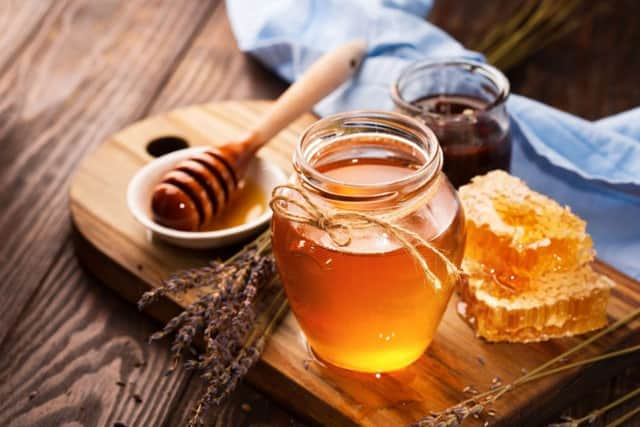Surprising benefits from eating honey


Since it tastes delicious, is a good alternative to sugar and can pretty much be added to everything, there’s really no excuse for it to be missing from your shopping list.
But if you really need further convincing, here are just a few medical benefits of honey that may just surprise you...
1. It’s great for the skin
Advertisement
Hide AdAdvertisement
Hide Ad

Honey is a brilliantly effective skin saviour that won’t cost the earth. Its antibacterial and anti-inflammatory properties can calm and soothe irritated skin, as well as being loaded with enzymes and other nutrients that nourish and cleanse the surface - some beauty bloggers even claim it’s cleared up their acne. If it’s a natural summer glow you’re looking for, get slathering - honey is a natural humectant, meaning it hydrates the skin by drawing in moisture from the air. Try mixing two tablespoons of raw or Manuka honey with one tablespoon of uncooked porridge oats for a DIY exfoliating mask.
2. It’s good for the heart
Honey is jam-packed with polyphenols; helpful antioxidants that have been linked to increased blood flow and preventing blood clots from forming. One study in rats even showed honey can protect the heart from oxidative stress, which can contribute to heart attacks and stroke, although more research needs to be done on the link between long-term human heart health and honey.
3. It gives you energy


As a carbohydrate made up of fructose and glucose, the sticky stuff makes for a high-powered, natural energy snack. Unlike refined sugar, it also contains small amounts of proteins and minerals such as B6, riboflavin and amino acids; compounds that help the body metabolise bad cholesterol and fatty acids.
While whizzing a spoonful into your smoothie won’t do any long-term harm, it’s important to remember to eat honey in moderation. “It’s a source of energy, but it’s still sugar, so it should be eaten more as an indulgent treat rather than a substitute for more nutritionally-rich foods such as fruit and veg,” says nutritionist Liz Tucker.
4. It can heal wounds
Advertisement
Hide AdAdvertisement
Hide AdWhen applied topically, researchers believe honey can have a healing effect on painful burns and lesions. One study published in the Diabetes Research and Clinical Practice journal found a 43.4% success rate of using honey on diabetic foot ulcers.
5.It can suppress a cough
Next time you have a cough, try easing the aggravation with a spoonful of soothing honey.
If nothing else, it’ll be a delicious pre-slumber treat that’ll satiate your sweet tooth.